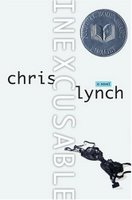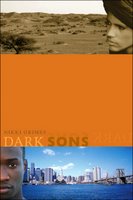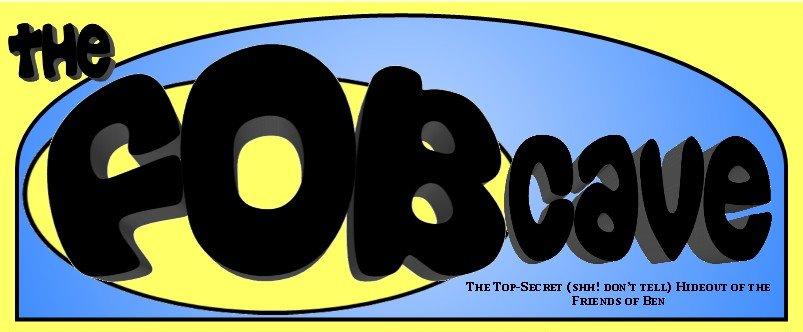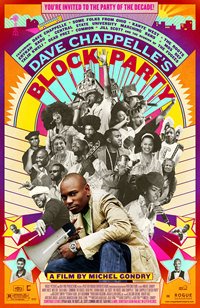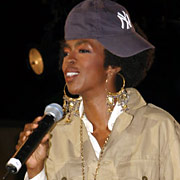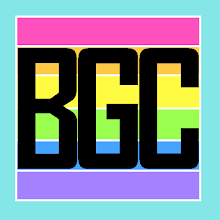Without you baby,
Feels like I sampled true love
But the shit didn't clear.
--Erykah Badu, "Love of My Life (An Ode to Hip-hop)"
I've started reading a book called Why White Kids Love Hip Hop: Wangstas, Wiggers, Wannabes, and the New Reality of Race in America. The author has an interesting premise, which is that white kids who love hip-hop are neither a sign of whites appropriating yet another black artform, nor a sign--as ultra-conservative moron Bill O'Reilly suggests--of the downfall of civilization as we know it, but rather this trend is a sign that the boundaries between race are slowly fading away. Basically he seems to be saying that white kids in Nebraska blasting 50 Cent in their pickups point toward an idyllic future in which we can all hold hands and sing (or rap) "Kumbaya" together across America. Okay, I admit I've only read the Preface, the Introduction, and the first chapter, but that is my impression thus far.
I agree that it's a good thing that race is not necessarily a determinant of what music one can or cannot listen to, particularly being that I am one of those white boys who listens to rap, but I don't see how white people listening to rap is any different from white people listening to rock or jazz or blues. Pretty much any kind of music that has ever been popular in America descended from Africa in some form or another.
This is all sort of beside the point, the point being (as usual) me. I started listening to rap in high school because that's what was cool in Hawaii and particularly among my group of friends and particularlier to my best friend, who determined what I thought was cool, from clothing to sunglasses to music. At the time I listened to mostly what was on the radio: Puff Daddy, Notorious B.I.G., Coolio, Snoop Dogg, and their ilk.
When I came to college I started buying CDs, and naturally I bought CDs from the artists I'd been used to hearing on the radio at home. My roommate, who was big into groups like the Police, U2, They Might Be Giants, and the Aquabats (read: white music) teased me incessantly for my taste in music--or, as he saw it, the lack thereof. This frustrated me to no end. Here I was doing what I'd been taught was cool, and suddenly I was in Utah and it wasn't cool anymore. It was, in fact, not cool. I was torn between shame for being uncool and pride in knowing that I was the only guy on my floor in Deseret Towers who knew what cool really was. I also found it interesting that my roommate and his friends loved the Beastie Boys and even had a sense of nostalgia for Vanilla Ice, but Puff Daddy was an insult to musicianship and MC Hammer was corny (I'd have to agree on that last one). My roommate always found it amusing when I accused him of being racist in his musical taste.
After my mission, when I decided to become an Intellectual--largely because I began to court an Intellectual--I began to feel embarrassed by P. Diddy's unclever rhymes about bling and homeboys and bitches and hoes. I even started to find his formulaic sampling of hits from the eighties, well, formulaic. I still liked the beat of hip-hop and the flow of rap, though, so I decided that rather than abandoning the genre, I'd find some artists within the genre that I could listen to and still feel intellectually and morally superior to the masses (because feeling superior, of course, is the ultimate goal of all Intellectuals). I started with the Fugees, who creatively blend genres in their music and make intelligent and meaningful references to religion and politics in their lyrics. From there I branched out to artists like them--Common, the Roots, Erykah Badu, and their ilk. Having done so, I am now part of a community of like-minded individuals who value the aesthetic and literary properties of alternative hip-hop. There are twenty-three of us in the United States.
Morals of the story:
1. I don't know why I like black music more than white music. I just do. I'm not a wigga or a wangsta or a wannabe and I'm not trying to appropriate black culture or take anything away from them.
2. I'm observing an odd trend in me: I tend to put myself in positions of being a minority within a minority. I'm not satisfied with being gay, for example; I choose to identify myself as a gay man married to a woman. I read young adult literature, but not that popular crap like Harry Potter (which must be crap because it's popular, right?); I only read literary young adult fiction. I listen to hip-hop, but not the hip-hop generally considered cool by kids who listen to hip-hop. No, I'm better than that. In my subconscious mind there are three tiers: normal, cool, and superior. And obviously the smallest sub-minority must be the superior elite, so obviously that is where I need to be. Yes, I realize how silly this makes me.
3. My desire to be superior and my desire to be liked are often at odds with each other. With my roommate and his friends, for example, I really wanted them to like me, to think I was cool, but at the same time I was proud of my difference, my secret knowledge that made me superior. Guess what? Nobody likes people who think they're superior. Especially when their reasons for believing themselves superior are stupid.
4. I have gone to great lengths to be not cool, but superior. This is why I feel the need to explain to people the difference between Talib Kweli and 50 Cent, that the hip-hop I listen to has nothing to do with that gangsta crap. This is also why I get irrationally defensive and pout for two days when you tell me while I have Lauryn Hill playing in my car that all rap seems to have transparent lyrics, nothing deep.
5. Going back to #3, I'd rather be liked. So I'm going to shut up now. I like my music not because it's better than yours or even because it's better than 50 Cent. I like it just because I do. The end.
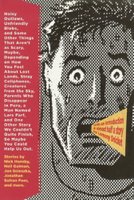 Quite Finish, So Maybe You Could Help Us Out by Nick Hornby, Neil Gaiman, Jon Scieszka, Jonathan Safran Foer, and more, with an introduction & almost half a story by Lemony Snicket.
Quite Finish, So Maybe You Could Help Us Out by Nick Hornby, Neil Gaiman, Jon Scieszka, Jonathan Safran Foer, and more, with an introduction & almost half a story by Lemony Snicket.